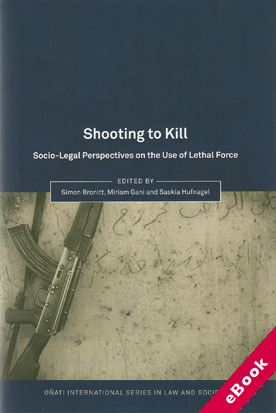We are now closed for the Christmas and New Year period, returning on Monday 5th January 2026. Orders placed during this time will be processed upon our return on 5th January.

The device(s) you use to access the eBook content must be authorized with an Adobe ID before you download the product otherwise it will fail to register correctly.
For further information see https://www.wildy.com/ebook-formats
Once the order is confirmed an automated e-mail will be sent to you to allow you to download the eBook.
All eBooks are supplied firm sale and cannot be returned. If you believe there is a fault with your eBook then contact us on ebooks@wildy.com and we will help in resolving the issue. This does not affect your statutory rights.
The present book brings together perspectives from different legal fields to examine the significant legal, moral and political issues which arise in relation to the use of lethal force in both domestic and international law.
These issues have particular salience in the counter-terrorism context following 9/11 (which brought with it the spectre of shooting down hijacked airplanes) and the use of force in Operation Kratos that led to the tragic shooting of Charles Menezes.
Concerns about the use of excessive force however are not confined to the terrorist situation. The essays in this collection examine how the state sanctions the use of lethal force in varied ways: through the doctrines of public and private self-defence and the development of legislation and case law that excuses or justifies the use of lethal force in the course of executing an arrest, preventing crime or disorder, or protecting private property.
An important theme is how the domestic and international legal orders intersect and continue to influence one another. While legal approaches to the use of lethal force share common features, the context within which force is deployed varies greatly. Key issues explored in this volume are the extent to which domestic and international law authorise pre-emptive use of force, and how necessity and reasonableness are legally constructed in this context.